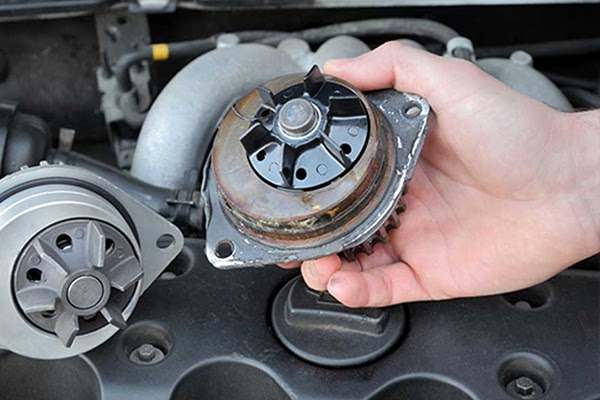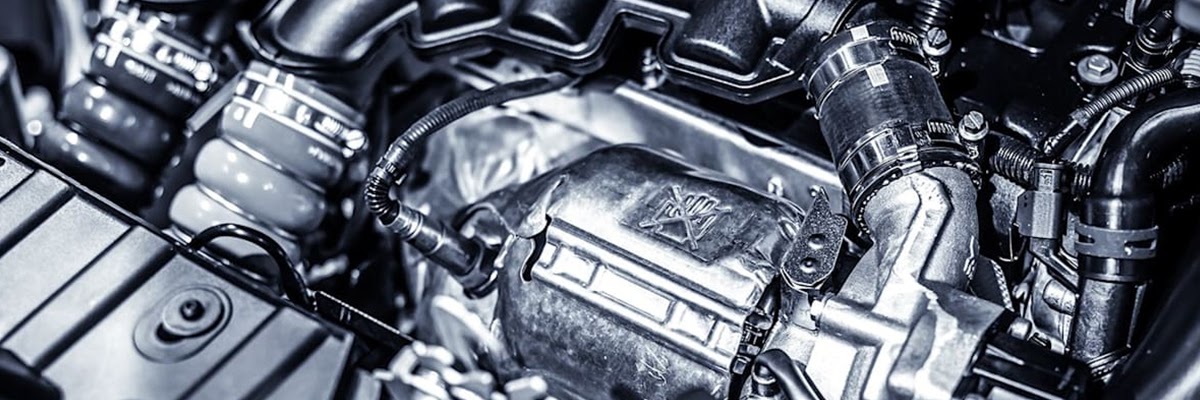Types and Causes of Car Cooling System Failures
Your car’s cooling system is a vital component responsible for regulating engine temperature and preventing overheating. When the cooling system fails, it can lead to serious engine damage and costly repairs. Understanding the types and causes of cooling system failures is essential for maintaining your vehicle’s performance and longevity. In this comprehensive guide, we’ll explore the common types of cooling system failures and the underlying causes behind them.
Types of Cooling System Failures:
- Coolant Leaks: Coolant leaks are one of the most common types of cooling system failures. These leaks can occur anywhere in the cooling system, including the radiator, hoses, water pump, heater core, or gaskets. Coolant leaks can lead to a loss of coolant, resulting in overheating and potential engine damage if not addressed promptly.
- Radiator Damage: The radiator plays a crucial role in dissipating heat from the engine. Damage to the radiator, such as corrosion, clogs, or punctures, can impair its cooling efficiency and lead to overheating. Common causes of radiator damage include road debris, corrosion from old coolant, or internal buildup of contaminants.
- Faulty Thermostat: The thermostat regulates coolant flow to the radiator based on engine temperature. A malfunctioning thermostat can fail to open or close properly, leading to inadequate coolant circulation and overheating. Thermostat failures may result from wear, corrosion, or electrical issues.
- Water Pump Failure: The water pump circulates coolant through the engine and radiator. A faulty water pump can impede coolant circulation, resulting in reduced cooling efficiency and overheating. Common causes of water pump failure include bearing wear, seal leaks, or impeller damage.
- Cooling Fan Malfunction: The cooling fan helps dissipate heat from the radiator. Malfunctions in the fan motor, relay, or sensors can prevent proper cooling, especially at low speeds or in stop-and-go traffic. Cooling fan failures can result from electrical issues, motor wear, or debris accumulation.
- Clogged Radiator or Hoses: Accumulation of debris, dirt, or contaminants can clog the radiator or cooling system hoses, obstructing coolant flow and impairing heat dissipation. Clogs can result from poor maintenance, using low-quality coolant, or operating in dusty environments.
- Air Pocket Formation: Air pockets or trapped air within the cooling system can prevent proper coolant circulation and lead to overheating. Air pockets may form during coolant replacement or repairs if the system is not properly bled or purged of air.

Causes of Cooling System Failures:
Now that we’ve identified the types of cooling system failures, let’s explore the underlying causes behind them:
- Lack of Maintenance: Neglecting regular maintenance, such as coolant flushes, hose inspections, and thermostat checks, can accelerate cooling system wear and lead to premature failure. Proper maintenance is essential for preserving cooling system integrity and preventing overheating.
- Coolant Contamination: Contaminants such as rust, scale, or debris can accumulate in the cooling system over time, impairing coolant flow and causing corrosion or clogs. Using low-quality coolant or mixing incompatible coolant types can exacerbate contamination issues.
- Excessive Heat: Operating the engine under extreme heat conditions, such as towing heavy loads in hot weather or driving in stop-and-go traffic, can strain the cooling system and lead to overheating. High engine temperatures can accelerate component wear and increase the risk of failure.
- Age and Wear: Cooling system components, including hoses, belts, thermostats, and water pumps, deteriorate over time due to heat, vibration, and chemical exposure. Aging components are more prone to failure and may require replacement to maintain cooling system reliability.
- Improper Repairs: Incorrect installation or repairs, such as improperly torqued hose clamps, mismatched coolant types, or incorrect thermostat installation, can compromise cooling system performance and lead to failures. It’s essential to follow manufacturer guidelines and use quality replacement parts for repairs. Interested? Read more at the link: https://outdoorlogic.net/
- External Damage: Road debris, rocks, or debris kicked up by other vehicles can damage cooling system components, such as the radiator or hoses, leading to leaks or reduced cooling efficiency. Driving on rough terrain or in areas with poor road conditions increases the risk of external damage to the cooling system.
- Electrical Issues: Cooling system components, such as the cooling fan, rely on electrical systems for operation. Faulty relays, wiring, or sensors can prevent proper cooling system function and lead to overheating. Electrical diagnostics may be necessary to identify and resolve underlying issues.
Preventive Measures:
To prevent cooling system failures and ensure reliable engine cooling, follow these preventive measures:

- Regular Maintenance: Schedule routine coolant flushes, hose inspections, and thermostat checks according to the manufacturer’s recommendations.
- Use Quality Coolant: Use the manufacturer-recommended coolant type and follow proper coolant mixing ratios to prevent contamination and corrosion.
- Inspect for Leaks: Periodically inspect the cooling system for signs of leaks, such as coolant puddles under the vehicle or low coolant levels in the reservoir.
- Monitor Engine Temperature: Keep an eye on the engine temperature gauge or warning lights and address any overheating issues promptly.
- Check Cooling System Components: Inspect radiator fins, hoses, belts, water pump, and cooling fan for signs of wear, damage, or corrosion.
- Proper Repairs: Ensure that cooling system repairs are performed correctly using quality replacement parts and following manufacturer guidelines.
- Keep the Cooling System Clean: Clean debris, dirt, and contaminants from the radiator and cooling system components regularly to maintain proper airflow and cooling efficiency.
By following these preventive measures and addressing cooling system issues promptly, you can maintain optimal engine cooling performance and prolong the lifespan of your vehicle’s engine. Regular maintenance and proactive inspections are key to preventing cooling system failures and avoiding costly repairs down the road. If you suspect cooling system problems or need assistance with repairs, consult a qualified mechanic for professional diagnosis and service.
